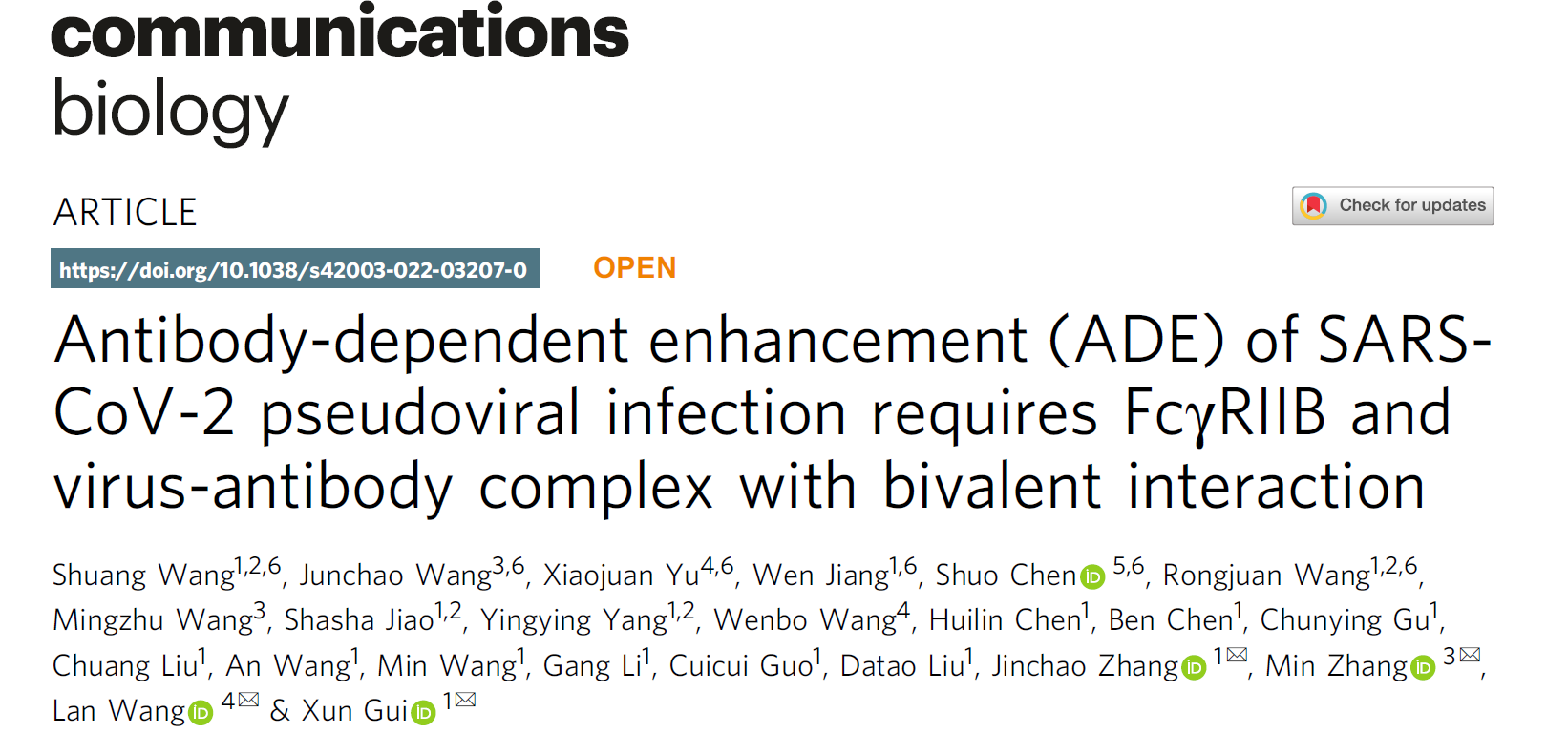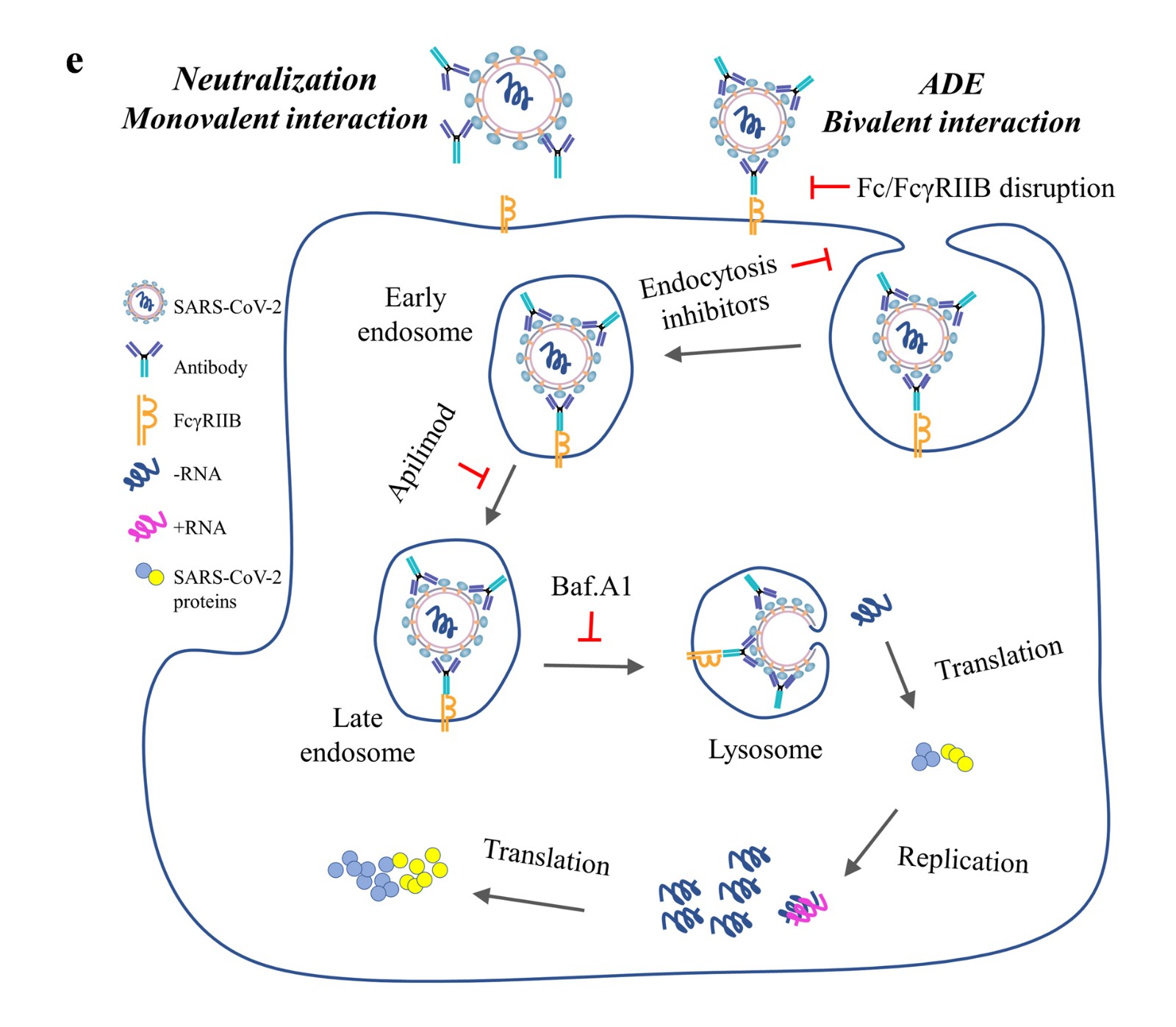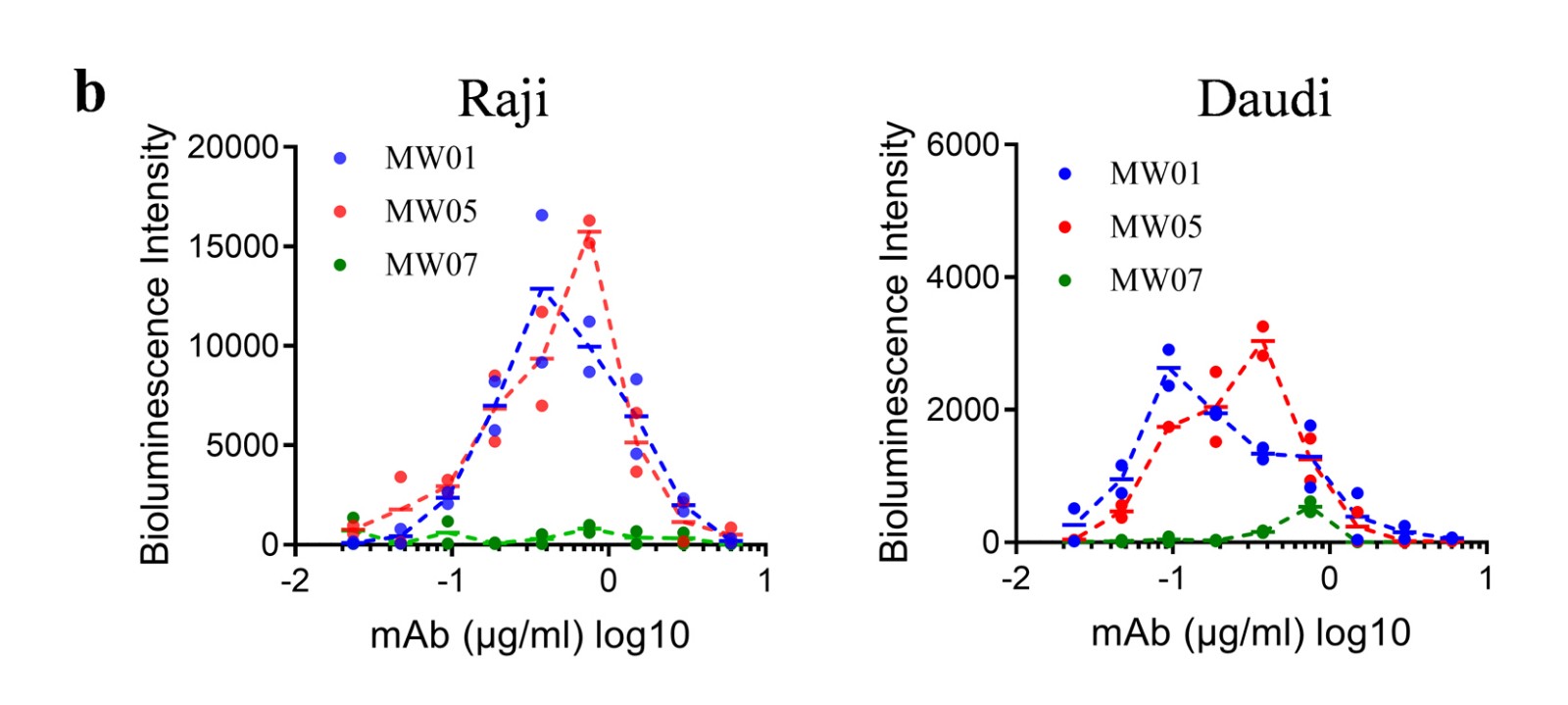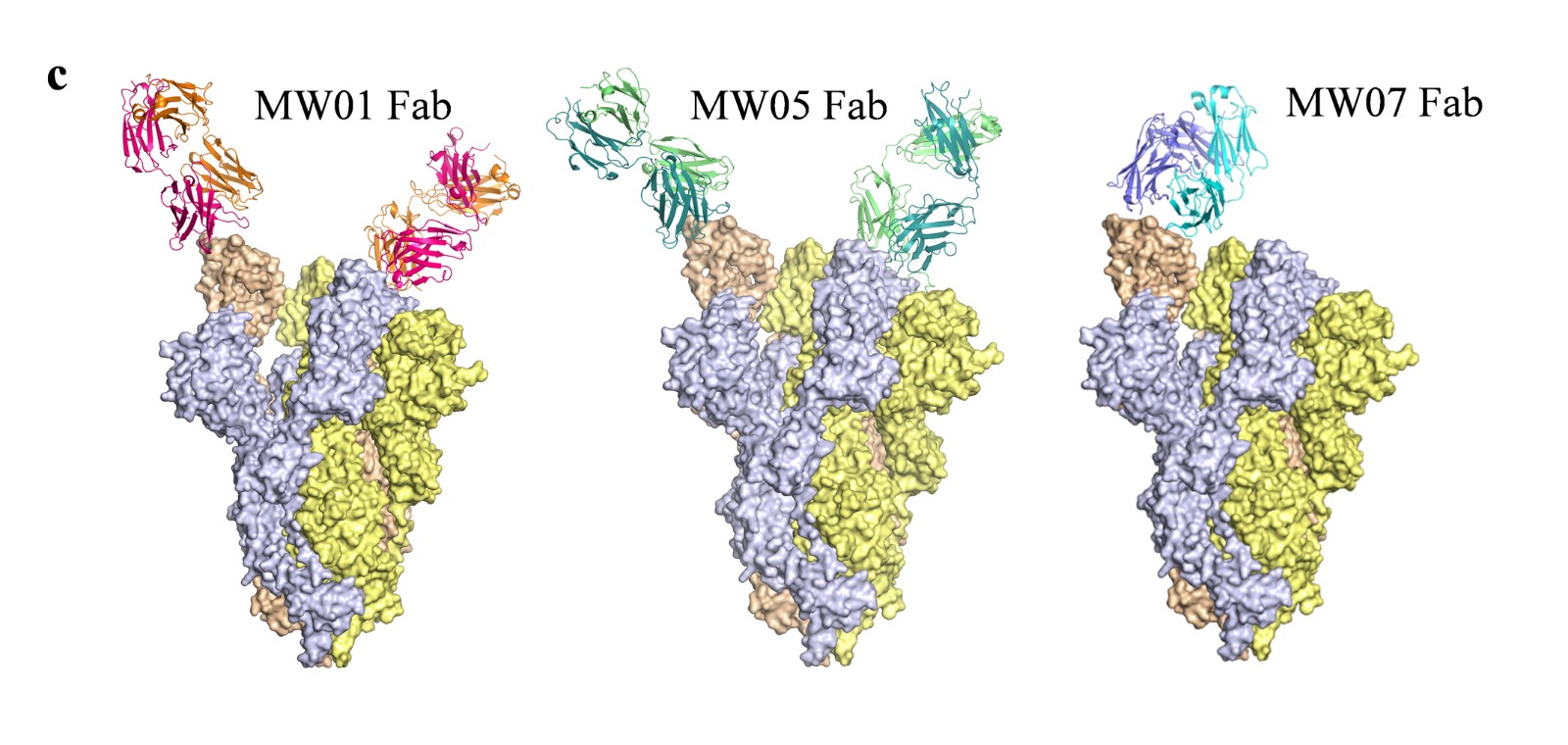Release time:Mar 28, 2022
Mabwell recently published research achievements entitled "Antibody-dependent enhancement (ADE) of SARS-CoV-2 pseudoviral infection requires FcγRIIB and virus-antibody complex with bivalent interaction" online in Communications Biology, revealing that the ADE effect induced by SARS-CoV-2 neutralizing antibodies requires bivalent binding of antibodies to SARS-CoV-2 Spike protein and cross-binding of Fc regions of antibodies to FcγRIIB.

Under the attack of the global epidemic, human beings are tussling with viruses through the research and development of vaccines and therapeutic drugs. Neutralizing antibodies are an important area of research in response to COVID-19 pandemic, and whether the SARS-CoV-2 neutralizing antibodies will cause ADE has been of great concern.

In 2020, Mabwell reported for the first time the findings from in vitro tests that some SARS-CoV-2 neutralizing antibodies enhance the SARS-CoV-2 pseudoviral infection of B cells by the direct interaction between Fc regions of antibodies and FcγRIIB on the surface of B cells (Nature Communications, 2020). In this study, Mabwell identified a subset of neutralizing antibodies from a series of SARS-CoV-2 neutralizing antibodies that could enhance the SARS-CoV-2 pseudoviral infection of originally insensitive B cell lines.

By means of structural biology methods and antibody-antigen interaction analysis, it was found that neutralizing antibodies which could induce ADE effect bound bivalently to SARS-CoV-2 Spike protein, whereas neutralizing antibodies which could not induce the ADE effect bound monovalently to SARS-CoV-2 Spike protein. After the neutralizing antibodies with ADE effect were changed from bivalent to monovalent by protein engineering, the ADE effect was completely eliminated. Further studies confirmed that FcγRIIB-mediated endocytosis, pinocytosis, and subsequent lysosomal transport pathways are involved in the ADE effect of SARS-CoV-2 neutralizing antibodies. The new ADE mechanism reported in this study provides a reference for the subsequent development of more effective and safer therapeutic drugs for COVID-19.

